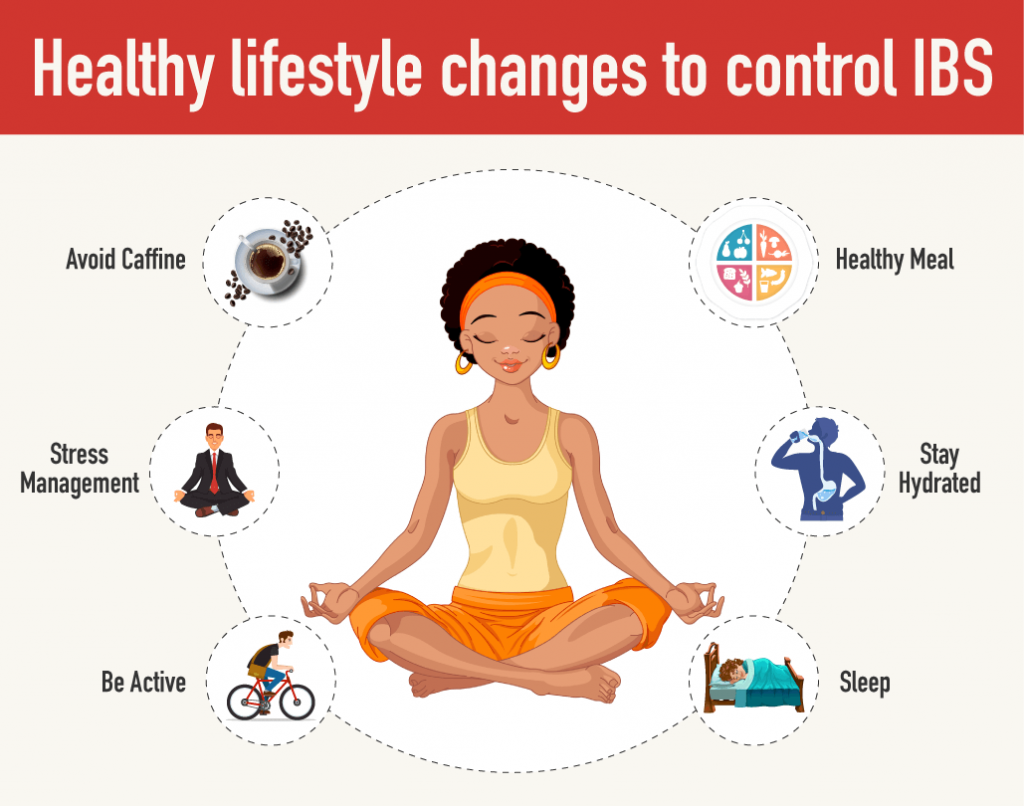While there may be no outright cure for Irritable Bowel Syndrome, there are effective steps you can take to both treat and manage IBS. Small changes in your lifestyle and diet can reduce the severity and frequency of IBS attacks.
IBS can be a long-term, chronic condition, but with careful and thoughtful management of your diet and lifestyle you can reduce the frequency and severity of your attacks. IBS is also a very individual condition, so you may need to try several of these tips before you discover what works best for you.
Food and Drink
IBS can be triggered and exacerbated by the things we eat and drink, but everybody’s digestive system is different: a food that’s a problem for you may be fine for someone else. You can try keeping a Food Diary to see what specific foods and drinks you should avoid, but here are a few general guidelines that have worked for IBS sufferers when planning an IBS diet:
- Cut down on alcohol, which is a stomach irritant. Some people find beer worse than other drinks, so if you don’t want to stop altogether, try different kinds
- Reduce your intake of starch, fatty foods and red meat – these can all be hard work for your digestive system
- Aim to get your full five-a-day of fruit and vegetable servings
- Cut down on sugar and salt
- Drink plenty of water – aim for at least eight glasses a day – and steer clear of tea, coffee and soft drinks
- Large meals can exacerbate IBS, so try grazing more throughout the day, or have five small meals instead of three large ones.
- Eat plenty of fibre, as this will help your digestion work more smoothly
- Try probiotics. They contain live bacteria that can help the balance of microflora in your digestive system
Exercise
The better shape you’re in, the healthier your digestive system is likely to be, so try exercising more often, even if it’s just walking instead of taking the bus (especially if you’re carrying a little too much weight). It all counts, and every pound lost means less of a burden on your digestive system.
Figure out a way to incorporate exercise into your routine in a way that means you’re likely to stick to it, so try to do something you’ll enjoy. Try walking, swimming, jogging, cycling, or taking exercise classes. If you can manage three 30 minute sessions a week, you’ll soon feel the effects – and so will your digestive system.
Exercise can also have an impact on stress levels, which are considered to be a cause of IBS in some people, so it really can make all the difference. Regular exercise is one of the most beneficial steps you can take to manage your IBS and improve your general health.
Lifestyle
By now, you know the effect that stress and anxiety can have on your IBS, and the vicious circle you can end up in when the stress of worrying about your next IBS attack is just making things worse. So what can you do to feel less stressed? Relaxation courses and meditation can help, or you can try things like yoga, Pilates, or massage sessions.
Day to day, keep a note of the situations and people that make you feel stressed and try to avoid them wherever possible (or at least be prepared for them). You should also avoid putting yourself under unnecessary pressure by preparing in advance and leaving plenty of time to get to meetings or appointments. Take short breaks at work to relax when possible and give yourself some time to unwind at the end of the day.
Diet and exercise play a significant role in managing Irritable Bowel Syndrome (IBS). A balanced and healthy diet, low in FODMAPs, can help reduce symptoms of IBS. Regular exercise helps relieve stress, improves digestion, and reduces inflammation in the gut. It’s recommended to consult a doctor and a dietitian to develop a personalized plan to manage IBS through diet and exercise.
